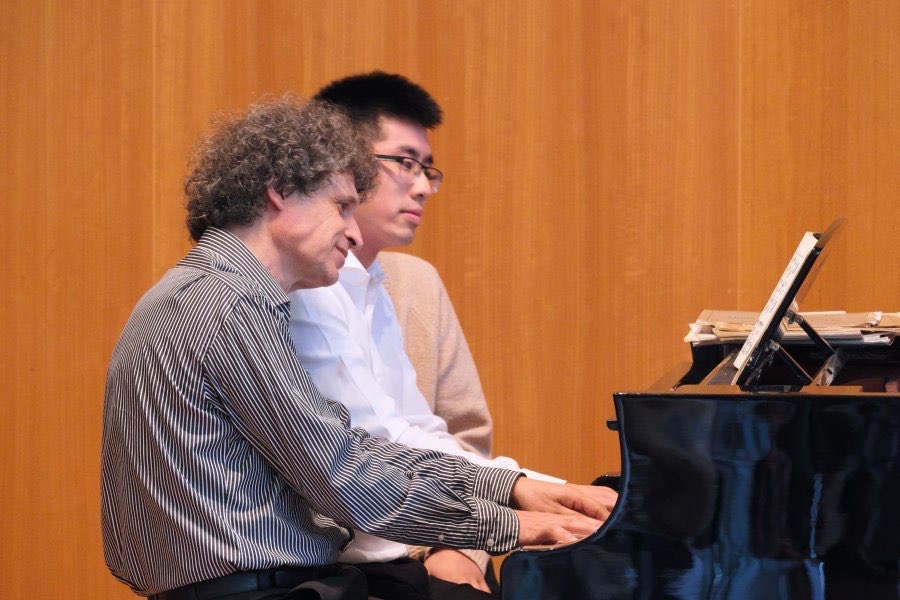Music / Piano Four-Hands, Arnan Wiese and Aaron Chew. At Wesley Music Centre, February 23. Reviewed by GRAHAM McDONALD.
This was the first of a series of five concerts over the next few months devised and performed by pianist Arnan Wiesel and harper Alice Giles.
For this concert Wiesel was joined by fellow pianist (and former student) Aaron Chew for a concert of four-handed piano playing.
This is where the two musicians sit side by side at the one keyboard and with music written to keep their hands at opposite ends of the keyboard. There is an extensive repertoire in this genre, both written specifically for this style of playing or arrangements of larger works.
This concert contained both arrangements and original works, beginning with a selection of JS Bach organ pieces. These were 20th century transcriptions by Hungarian composer Gyorgy Kurtag where the bass pedal parts were given to the player on the lower end of the keyboard.
These were followed by Oriental Pictures Op 66 by Robert Schumann composed in 1848 and inspired by the publication in German of translations of erotic oriental poetry (I think that is what Wiesel said). These were six pieces whose only descriptions are instructions such as “lively” or “not fast”. This is interesting music and quite varied, though your reviewer struggled at times to discern when one finished and next began.
The first half of the concert concluded with several works by another 20th century Hungarian composer Gyorgy Ligeti, who music was used the 2001 – A Space Odyssey. These made full use of the possibilities of the four-handed piano, especially the charming Polyphonic Etude: Allegro comodo written in 1943 where four quite separate lines of music start at different times and triumphantly all finish together.
Two short sets of teaching pieces by Igor Stravinisky opened the second half. These featured simpler parts for the student and more complex parts for the teacher with each set swapping the roles around. These were followed by a suite of short waltzes, op.39, by Johannes Brahms and a set of Variations, op.82, by Franz Schubert to finish the concert.
This was a concert of fascinating music and expertly played, but there was just too much of it. It was over an hour and half of music to which was added another 15 minutes of spoken introductions and a 20-minute intermission. Two half hour sets using a selection from each body of work would have been plenty of music to both educate and entertain the audience. Better to leave them wanting more, than over satiated.
Who can be trusted?
In a world of spin and confusion, there’s never been a more important time to support independent journalism in Canberra.
If you trust our work online and want to enforce the power of independent voices, I invite you to make a small contribution.
Every dollar of support is invested back into our journalism to help keep citynews.com.au strong and free.
Thank you,
Ian Meikle, editor






